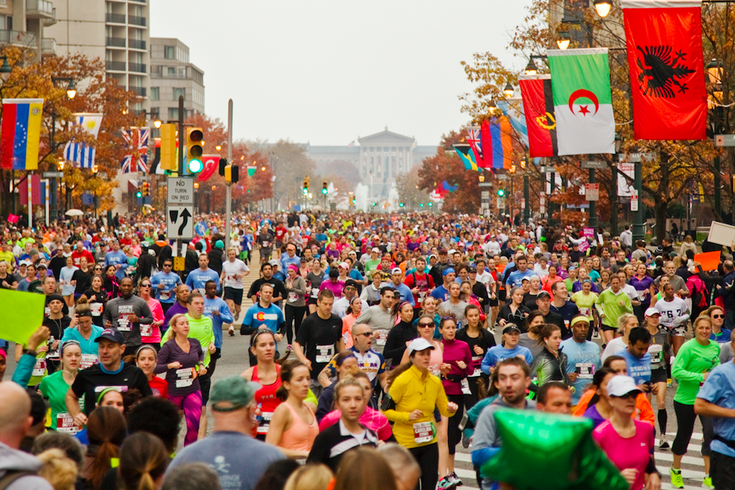
November 16, 2018
 M. Edlow/Visit Philadelphia™
M. Edlow/Visit Philadelphia™
The Philadelphia Marathon takes place on the third Sunday of November each year.
With the Philadelphia Marathon (and Half Marathon) this weekend, people who have spent months training for the races probably have one thing on their mind when crossing that long-awaited finish line: recovery.
While there are many types of recovery, ranging from food to cryotherapy, there are two main forms of post-workout recovery that are easy to complete at home: cold and hot therapy. While "icing and elevating" or laying on a heating pad are probably already in your post-run repertoire, knowing which one is better can help you streamline your recovery after a big race.
RELATED READ: Check out all the deals for Philadelphia Marathon runners
According to Runner’s World, ice therapies and baths are the best bet for runners — even though the effects can be minimal in the eyes of science. “At the end of the day, we’re trying to prepare our body for the next workout, and cold is another brick in rebuilding after recovery with sleep, diet, hydration, stretching, and [more],” said Robert Gillanders, doctor of physical therapy and a spokesman for the American Physical Therapy Association.
While ice packs are fine and dandy, cold-water immersion generally produces the best results for our deep tissues, making it a more efficient way of cooling down large groups of muscles at once. While a polar plunge sounds like a great idea in theory, the practice is breathtaking, and in the worst way. But here’s the good news: to reap the benefits of cold water immersion, the water only really needs to be around 50 to 60 degrees Fahrenheit. So cool, but not freezing, water should do the trick.
Gillanders suggests only soaking for 10 to 15 minutes max, and if you’re legs feel stiff when stepping out of the tub, that’s totally normal — “that’s just the cold working on repairing the trauma to your tissue on a micro-level, and you’ll feel much better the next day,” he explained.
As for the best ways to refuel after a long run, Runner's World has some suggestions for that, too.